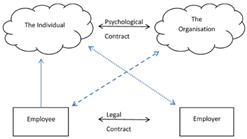Ethical deployment of cognitive biases in marketing a framework for responsible influence
Abstract
This paper examines the intersection of cognitive biases and ethical marketing practices, highlighting how psychological principles can influence consumer behavior within ethical boundaries. Cognitive biases such as scarcity bias, authority bias, the halo effect, and confirmation bias significantly shape consumer perceptions and decisions. However, their application in marketing raises complex ethical concerns, particularly regarding consumer autonomy and the potential for manipulation. This study proposes a conceptual framework that integrates ethical guidelines with marketing strategies that utilize cognitive biases. Through a comprehensive literature review and theoretical analysis, this paper outlines the implications of these biases in marketing, develops a set of ethical guidelines, and discusses the broader impacts on consumer trust and brand integrity. The findings give marketers practical insights for ethically harnessing cognitive biases, ensuring that marketing practices drive business success and maintain consumer respect and loyalty.
References
Akter, S., Sultana, S., Mariani, M., et al. (2023). Advancing algorithmic bias management capabilities in AI-driven marketing analytics research. Industrial Marketing Management, 114, 243–261. https://doi.org/10.1016/j.indmarman.2023.08.013
Ali, M., Atiek, A. H., Zainol, S. B., et al. (2022). Current Political Crisis Impacts on Pakistan’s Public Life: An Economic Case Study Regarding the Present Situations in Pakistan. Zenodo. https://doi.org/10.5281/ZENODO.7473708
Atreides, K. (2023). Automated bias and indoctrination at scale… is all you need. In: Biologically Inspired Cognitive Architectures Meeting. Cham: Springer Nature Switzerland. pp. 70-82.
Azizzadeh, F., Islam, M. S., Naushin, N., et al. (2022). Modeling employees’ skills for sustainable banking services. Frontiers in Sociology, 7. https://doi.org/10.3389/fsoc.2022.985158
Basir, S. M., Islam, M. S., Azizzadeh, F., & Ali, M. (2023). The Covid-19 Pandemic and Economy-A Study on Bangladesh. Jurnal Aplikasi Manajemen, Ekonomi dan Bisnis, 7(2), 19-26. https://doi.org/10.51263/jameb.v7i2.158
Benjelloun, A., & Kabak, S. (2024). Ethical Challenges and Managerial Implications of Artificial Intelligence in Digital Marketing. In: Congress on Intelligent Systems. Springer, Singapore. pp. 439-445.
Buhalis, D., & Islam, M. S. (2022). Moment of truth. In: Buhalis, D. (editor). Encyclopedia of Tourism Management and Marketing. Edward Elgar Publishing. https://doi.org/10.4337/9781800377486
Burr, C., & Leslie, D. (2022). Ethical assurance: a practical approach to the responsible design, development, and deployment of data-driven technologies. AI and Ethics, 3(1), 73–98. https://doi.org/10.1007/s43681-022-00178-0
Du, S., & Xie, C. (2021). Paradoxes of artificial intelligence in consumer markets: Ethical challenges and opportunities. Journal of Business Research, 129, 961–974. https://doi.org/10.1016/j.jbusres.2020.08.024
Hermann, E. (2021). Leveraging Artificial Intelligence in Marketing for Social Good—An Ethical Perspective. Journal of Business Ethics, 179(1), 43–61. https://doi.org/10.1007/s10551-021-04843-y
Irfan, M., Ahmed, A. K., Shariati Najafabadi, S., et al. (2024). Factors Influencing Expatriate Employees’ Commitment to the Private Sector in Qatar. The International Journal of Interdisciplinary Social and Community Studies, 19(2), 1–22. https://doi.org/10.18848/2324-7576/cgp/v19i02/1-22
Islam, M. S. (2023). Striking a paradoxical balance: Shakespearean insights for hospitality management. Tourism and Hospitality Research, 0(0). https://doi.org/10.1177/14673584231188917.
Islam, M. S. (2024). From data privacy to environmental sustainability: Comprehensive perspectives on smart tourism challenges. Smart Tourism, 5(1), 2534. https://doi.org/10.54517/st.v5i1.2534
Islam, M. S. (2024). Utilization of Video Reflexive Ethnography in Hospitality and Tourism Research. Journal of Quality Assurance in Hospitality & Tourism, 1–34. https://doi.org/10.1080/1528008x.2024.2334715
Islam, M. S., & Kirillova, K. (2020). Guests’ Perceptions of Hospitality Employees’ Non-Verbal Behavior: Insights from a Restaurant Sector. EasyChair.
Islam, M. S., Azizzadeh, F., Laachach, A., et al. (2023). Halal tourism’s themes, theories and methods: A general literature review. Revista Turismo & Desenvolvimento, 41, 509-530. https://doi.org/10.34624/rtd.v41i0.31116
Islam, M. S., Azizzadeh, F., Zupok, S., et al. (2022). Service Employees’ Expressions of Emotions in Restaurants: A Transcendental Phenomenology Study. Journal of Environmental Management & Tourism, 13(6), 1681-1796.
Lobschat, L., Mueller, B., Eggers, F., et al. (2021). Corporate digital responsibility. Journal of Business Research, 122, 875–888. https://doi.org/10.1016/j.jbusres.2019.10.006
Rao, A., & Hossain, M. R. (2023). The Future of Finance. Leveraging AI and Emotional Intelligence in Contemporary Business Organizations, 166–186. https://doi.org/10.4018/979-8-3693-1902-4.ch010
Selem, K. M., Islam, M. S., Aureliano-Silva, L., et al. (2023). Nexus of customer adaptation to mannequins with visit intention to full-service restaurants: Role of spatial layout. International Journal of Hospitality Management, 115, 103608. https://doi.org/10.1016/j.ijhm.2023.103608
Smith, N. C., Goldstein, D. G., & Johnson, E. J. (2013). Choice without Awareness: Ethical and Policy Implications of Defaults. Journal of Public Policy & Marketing, 32(2), 159–172. https://doi.org/10.1509/jppm.10.114
Tan, C. C., Islam, M. S., Sinha, R., et al. (2024). Compatibility as a pivotal design factor for digital concierge apps: exploring hotel guests’ socio-psychological dynamics. Kybernetes. https://doi.org/10.1108/k-12-2023-2658
Wang, G., Azizzadeh, F., Mohammadaminzadeh, L., et al. (2022). Experience of Principals in Private Educational Institutions to Find Sources of Income: A Qualitative Approach. The International Journal of Educational Organization and Leadership, 29(2), 89–101. https://doi.org/10.18848/2329-1656/cgp/v29i02/89-101
Copyright (c) 2024 Mohammad Shahidul Islam , Fariba Azizzadeh, Muhammad Ali

This work is licensed under a Creative Commons Attribution 4.0 International License.









